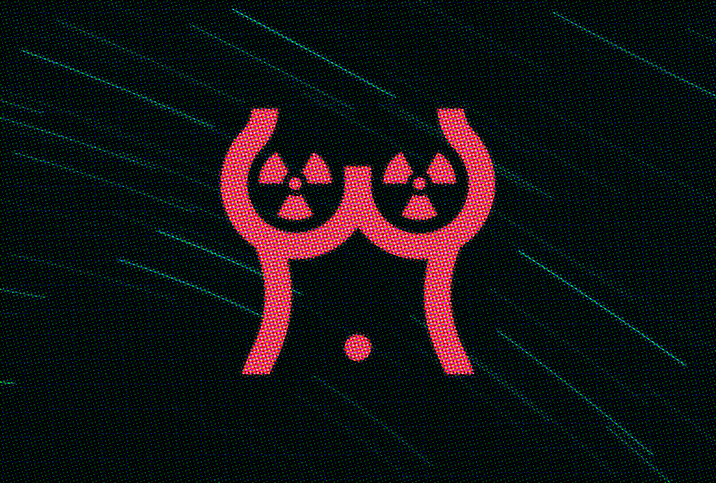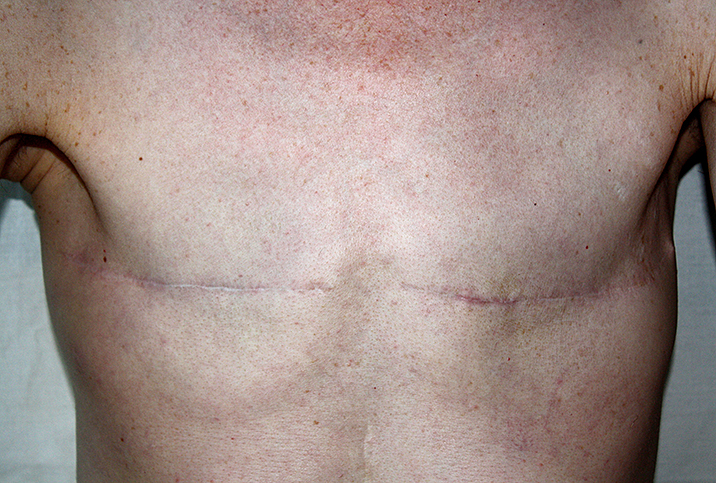How to Deal With the Side Effects of Radiation Treatment for Breast Cancer

Irritated skin, a lack of energy, soreness and even pain are all symptoms of radiation therapy for breast cancer treatment. These can be tough to live with, especially following debilitating surgery or chemotherapy.
Here’s what to expect and how to cope.
Radiation treatment
Radiation therapy uses high-energy X-rays, protons or other particles to target cancer cells and kill them.
Radiation is typically outpatient at a hospital or other treatment center and can be delivered externally (external radiation) or internally (brachytherapy) to treat cancer at any stage and reduce the risk of recurrence after surgery (lumpectomy or mastectomy). It can also reduce the pain and symptoms of advanced cancer, including metastatic cases.
Side effects
Treatment with radiation is painless and invisible, but there are still a number of side effects, which vary depending on the location and type of radiation performed.
In the short term, radiation therapy symptoms include redness or bruising at the site, itchiness, blistering and peeling, fatigue, breast pain or swelling, infection, breast fatty tissue damage and fluid collection in the breast. In rare cases, patients can experience weakness and possibly a fracture of the ribs.
Uncommon but possible additional effects include arm swelling (lymphedema), and very rarely, damage to a breast implant, chest wall tenderness, inflamed lung tissue, heart damage and secondary cancers such as bone, muscle or lung.
Preparing for radiation
Before you begin radiation therapy, you’ll have a team—a radiation oncologist (and their medical physicist and dosimetrist), oncology nurse, nurse practitioner or physician's assistant and radiation therapists.
Your oncologist will begin by reviewing your medical history and discussing the management of any side effects. You will be checking in with your radiation oncology team during treatment and for a period of time after to monitor your condition.
If you notice persistent pain, unexplained weight loss, new or growing lumps, bruises, rashes, swelling, persistent fever or cough or any other problematic or worrisome symptoms, contact your doctor immediately.
Coping and managing symptoms
Be gentle and attentive with skin exposed to radiation treatment. People often describe the feeling as that of a persistent sunburn.
Clean your skin carefully with warm water and gentle soap. Don’t put warm or cold pads directly on the skin and never use lotions, perfumes, powders, alcohol-based products or deodorants. Your radiation oncologist can recommend products safe for use.
You should also protect exposed skin from the sun: Cover up with layers, and use SPF 30 sunscreen or greater. It's important you don’t try to remove the radiation marks as they guide treatments. Additionally, getting plenty of rest can help fight fatigue and give your body the strength and downtime needed for successful recovery.
Eating a balanced diet is critical, one that includes plenty of fruit, vegetables, whole grains, protein and a variety of vitamins and minerals. It's also important to minimize processed foods and cut down on sugar and salt. Providing your body with the nutrients it needs to be healthy can be difficult for patients experiencing nausea or loss of appetite. Talk to your doctor about strategies. The goal is to maintain your weight during this period. Don't even think of attempting any dieting program.
Remain physically active to boost energy and mood and maintain muscle mass. Brisk walking and yoga are safe options whereas rigorous training is not recommended during or shortly after radiation treatment.
Finally, take care of your mental health. Cancer diagnoses and treatment can cause an array of mental health issues, such as anxiety, depression, stress, angst and fear. Get help if you need it and open up to family, friends, a loving partner or a support group.
Above all, be sure to make time for yourself and rediscover things that bring you calm and joy.


















